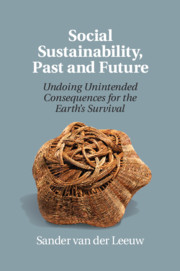Social Sustainability, Past and Future
In this Open Access book, Sander van der Leeuw examines how the modern world has been caught in a socioeconomic dynamic that has generated the conundrum of sustainability. Combining the methods of social science and complex systems science, he explores how western, developed nations have globalized their world view and how that view has led to the sustainability challenges we are now facing. Its central theme is the coevolution of cognition, demography, social organization, technology, and environmental impact. Beginning with the earliest human societies, van der Leeuw links the distant past with the present in order to demonstrate how the information and communications technology revolution is undermining many of the institutional pillars on which contemporary societies have been constructed. An original view of social evolution as the history of human information-processing, his book shows how the past offers insight into the present and can help us deal with the future.
Sander van der Leeuw is Foundation Professor in the Schools of Sustainability and Human Evolution and Social Change at Arizona State University. Trained as an archaeologist and historian, he specializes in long-term interactions between humans and their environments and pioneers the application of the complex adaptive systems approach to socioenvironmental challenges, technology, and innovation. Van der Leeuw is the author and editor of eighteen books. In 2012, he was awarded the “Champion of the Earth for Science and Innovation” prize by the United Nations Environment Program.

